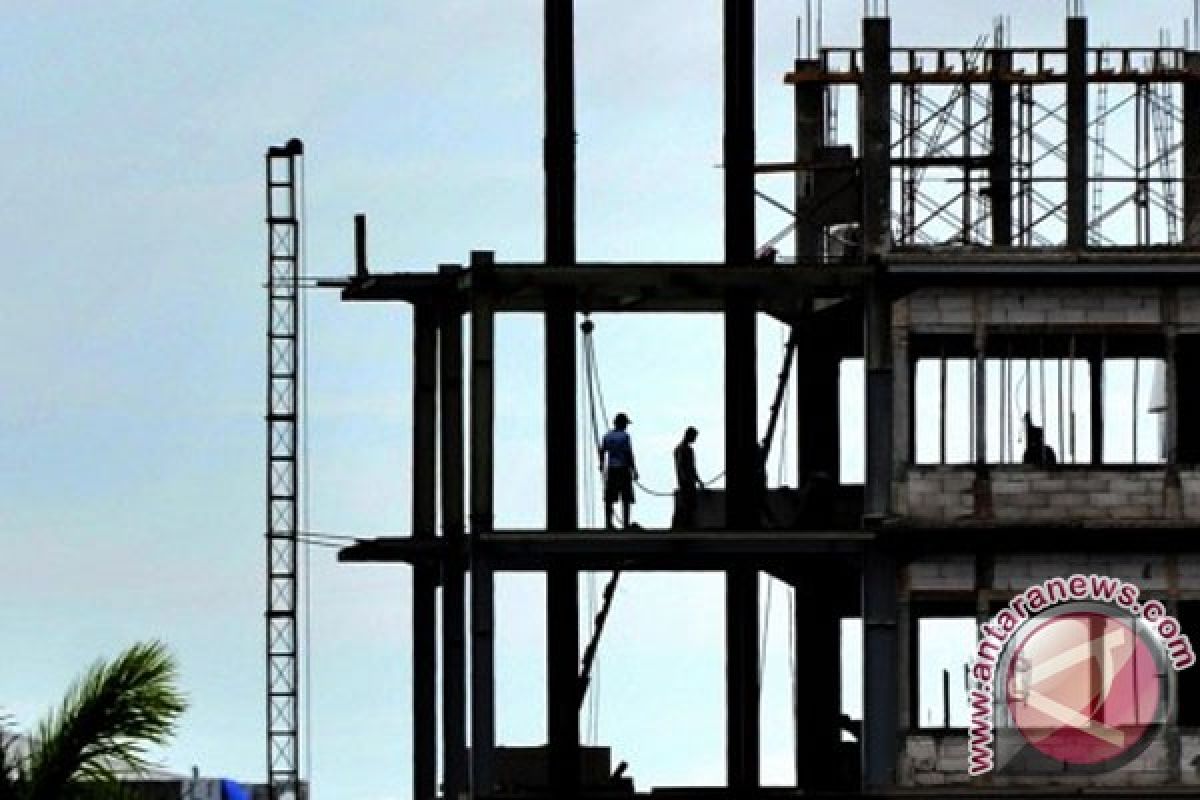The great challenge ahead is identifying ways to improve the small and medium business entities ..."Jakarta (ANTARA News) - Local contractors in the region are expected to improve their skills and develop more when the government, through the Ministry of Public Works and Public Housing, simplifies the certification requirements and construction services business license.
The government is set to simplify the certification requirements and construction services business license, which has hampered the progress of local contractors so far.
Yaya Supriatna, the head of Institutional Business Development and the Directorate General of Construction of the Ministry of Public Works and Public Housing, has said the government will pursue the simplification of certification requirements and construction services business licenses.
He also expressed his hope for an active role in fostering members of the national contractors association to better contribute positively to the advancement of the construction sector in Indonesia.
Therefore, he remarked that the government will facilitate and encourage members of the association to help transform medium-scale enterprises into large-scale ones.
The Ministry of Public Works and Public Housing has prepared a regulation that will set criteria for the construction services business entities to work on a package with a certain amount of value to further empower local contractors.
With the regulation, he noted that projects worth under Rp50 billion will be worked out by middle-class contractors and those worth more than Rp50 billion will be handled by large contractors.
Furthermore, the Indonesian Builders Association (Gapensi) has appreciated the policy of the Ministry of Public Works and Public Housing to empower middle-class local contractors by providing them with the Rp50 billion worth projects.
"The Ministry of Public Works and Public Housing has vowed to increase the capacity and competitiveness of local contractors to face the challenge of the ASEAN free market at the end of 2015," Secretary General of Gapensi Andi Rukman Karumpa said here recently.
He pointed out that to welcome the ASEAN Economic Community, the government has encouraged the improvement of the capacity of local contractors.
Karumpa added that of the total 160 thousand business entities in Indonesia, only five percent were large contractors.
"Large contractors control 85 percent of the national construction market, while the remaining 15 percent are contested by small and medium enterprises, which make up 95 percent of the existing 160 thousand business entities," Karumpa stated.
He further noted that such a condition leads to unhealthy and distorted business competition among the nations small and medium construction contractors.
According to the Gapensi secretary general, unfair and unbalanced construction contracts will only benefit one party and harm the others.
In addition, Karumpa pointed out that small and medium entrepreneurs in the construction sector were the most vulnerable to criminal acts, although they are very large in number, as much as 99 percent of the total 48 thousand members of Gapensi.
He said that the success in attracting more investors will depend on the progress made in infrastructure development.
"The key is in infrastructure development. If infrastructure is good, investors will come," Karumpa affirmed, adding that foreign investors would have high confidence in the Indonesian economy if the central government and regional administrations succeed in coping with difficulties in land clearing.
The implementation and completion of several development projects, especially in the regions, have been delayed over difficulties faced in land clearing.
Karumpa pointed out that the provincial and district administrations were not serious about establishing cooperation to deal with difficulties they face, such as in land clearing for infrastructure projects.
Earlier, the acting director general for construction of the Ministry of Public Works and Public Housing Hediyanto W. Husaini had admitted that the construction market was dominated by large, qualified business entities that constituted merely one percent of the 130 thousand business entities in construction services.
"The great challenge ahead is identifying ways to improve the small and medium business entities and make them adept at facing high competitiveness," he stressed.
Moreover, Secretary General of the Indonesian Architects Association (IAI) Sartio Herlambang pointed out that the construction industry in Indonesia was projected to grow by 14.26 percent in 2015 and plays an important role in the nations economic growth.
"The IAI realizes that the growth of the construction sector has an important role in the economic development of member states of the ASEAN, especially in Indonesia and Myanmar," Herlambang stated.
He added that the construction markets growth potential was enormous due to the high demand for infrastructure development, along with the several challenges that must be faced.
"The construction industry in Myanmar is also growing exponentially. It grew by 14.52 percent from 2009 to 2013, in line with the increase in population and strong economic growth," Herlambang remarked.
In addition, the IAI secretary general revealed that the Myanmar Real Estate and Construction Monitor had observed an increasing interest from Indonesian construction companies to capitalize on the opportunities in Myanmar.
"Construction companies such as Ciputra Group, Lippo Group, and Wijaya Karya (WIKA) have agreed to undertake development projects in Myanmar," he affirmed.
He explained that WIKA has undertaken a multifunctional development project worth US$270 million in Yangon. It covers commercial and residential units that will be ready in 2017.
"The owner of the largest private hospital operator in Indonesia, property developer and retailer, the Lippo Group is planning to build 15 new hospitals in Myanmar in the next 20 years and also plans to venture into the retail sector," he said.
(T.O001/INE/KR-BSR/A014)
Reporter: Otniel Tamindael
Editor: Priyambodo RH
Copyright © ANTARA 2015












